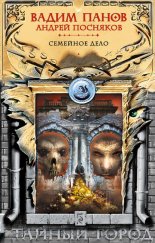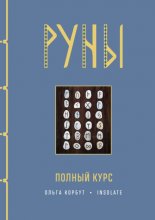Зло под солнцем / Evil Under the Sun Кристи Агата

– Наверное, можно сказать и так, – пожал плечами Кеннет.
– И вы по-прежнему утверждаете, что завещания она не составляла?
– Вы можете спросить у ее поверенных. Но я убежден в том, что не оставляла. Как я уже говорил вам, Арлена считала, что это принесет несчастье.
Последовало молчание, после чего Маршалл добавил:
– Что-нибудь еще?
Уэстон покачал головой:
– Не думаю. Колгейт, у вас есть вопросы? Нет?.. Капитан Маршалл, позвольте еще раз выразить вам соболезнование в связи с постигшей вас утратой.
Кеннет часто заморгал.
– О… спасибо, – дрогнувшим голосом произнес он и вышел.
Трое оставшихся в кабинете переглянулись.
– Непробиваемый человек, – заметил Уэстон. – Ничего нам не сказал. Колгейт, вы что о нем думаете?
Инспектор покачал головой.
– Трудно сказать. Он не из тех, кто раскрывает душу. Люди такого типа производят плохое впечатление, когда дают показания в суде, и все же это несправедливо. Бывает, они сильно переживают случившееся, но только не показывают этого. Именно такое поведение подтолкнуло присяжных в деле Уоллеса вынести вердикт «виновен». Улики тут были ни при чем. Просто присяжные не смогли поверить в то, что человек, потерявший жену, способен так спокойно и невозмутимо говорить об этом.
Уэстон повернулся к маленькому бельгийцу:
– А вы что думаете, Пуаро?
Тот поднял руки вверх.
– Что тут можно сказать? Этот человек – запертый ящик, закрытая устрица. Он выбрал для себя такое поведение: ничего не видел, ничего не слышал, ничего не знает!
– Мотивы могут быть самые разные, – сказал Колгейт. – Это может быть ревность, это может быть вопрос денег. Разумеется, в определенном смысле очевидным подозреваемым является муж. Естественно, в первую очередь думаешь о нем. Если он знал, что его благоверная гуляет с другим типом…
Пуаро не дал ему закончить свою мысль:
– Полагаю, Маршалл все знал.
– Почему вы так думаете?
– А вот почему. Вчера вечером я беседовал с миссис Редферн на Солнечной террасе. Затем, возвращаясь в пансионат, я по пути увидел этих двоих вместе – миссис Маршалл и Патрика Редферна. После чего я практически сразу же наткнулся на капитана Маршалла. У него было очень натянутое лицо. Оно ничего не выражало – ну абсолютно ничего! Можно сказать, оно было чересчур бесстрастное, если вы меня понимаете. О, Маршалл все знал, это точно!
Колгейт с сомнением проворчал что-то себе под нос.
– Ну хорошо, если вы считаете…
– Я в этом уверен! Но даже если это действительно так, о чем это нам говорит? Какие чувства испытывал капитан Маршалл к своей жене?
– К ее смерти он отнесся весьма прохладно, – заметил полковник Уэстон.
Пуаро расстроенно покачал головой.
– Порой вот такие тихони на поверку и оказываются самыми горячими натурами, – сказал инспектор Колгейт. – Все его чувства наглухо закупорены. Вполне возможно, Маршалл безумно любил свою жену – и безумно ее ревновал. Но он не из тех, кто это показывает.
– Да, вполне возможно, – медленно произнес Пуаро. – Он очень любопытная личность, этот капитан Маршалл. Меня он весьма интересует. Как и его алиби.
– Алиби, подтвержденное пишущей машинкой, – усмехнулся Уэстон. – Что вы можете на это сказать, Колгейт?
Инспектор потер глаза.
– Ну, знаете, сэр, мне это алиби нравится. Оно не слишком уж хорошее, если вы понимаете, что я хочу сказать. Оно… ну, оно естественное. И если выяснится, что горничная находилась поблизости, что она слышала стук машинки, тогда, по-моему, всё в порядке и нужно искать где-нибудь в другом месте.
– Гм, – произнес полковник Уэстон, – и где же вы собираетесь искать?
Минуту-другую собравшиеся в кабинете обдумывали этот вопрос. Первым нарушил молчание инспектор Колгейт:
– Все сводится к следующему: кто это сделал – кто-то посторонний или один из отдыхающих в пансионате? Поймите меня правильно, я не сбрасываю со счетов прислугу и все же не могу поверить в то, что кто-либо из них причастен к убийству. Нет, это дело рук отдыхающих или кого-то совершенно постороннего. Нужно рассматривать все именно в таком ключе. Первый вопрос – мотив. Есть финансовая выгода. Похоже, единственный, кто выигрывает от смерти Арлены Маршалл, это ее супруг. Какие еще есть мотивы? Первый и главный – ревность. Лично мне кажется, что налицо самое что ни на есть типичное crime passionel. – Он поклонился в сторону Пуаро.
– Страсть бывает самой разной, – уставившись в потолок, пробормотал тот.
– Муж категорически заявил, что врагов у нее не было, – продолжал Колгейт. – Имеется в виду, настоящих врагов, но я ни капельки в это не верю! На мой взгляд, у такой женщины непременно должны были быть враги – заклятые враги. Что вы хотите сказать, сэр?
– Mais oui, – вмешался Пуаро. – Арлена Маршалл наверняка нажила себе немало врагов. И все же, на мой взгляд, теория о врагах не выдерживает никакой критики, поскольку, инспектор, на мой взгляд, все враги Арлены Маршалл, как я уже говорил, – женщины.
– В этом что-то есть, – согласился полковник Уэстон. – У здешних женщин имелись причины вонзить в нее нож.
– С другой стороны, – продолжал Пуаро, – едва ли возможно, что преступление осуществила женщина. Что говорит медицинский осмотр?
– Нисден практически стопроцентно убежден в том, что Арлену Маршалл задушил мужчина, – проворчал Уэстон. – Большие руки, мощная хватка. Конечно, не исключено, что это сделала необычайно сильная женщина, но все-таки это крайне маловероятно, черт побери.
Пуаро кивнул.
– Вот именно. Мышьяк в чашке чая, коробка отравленного шоколада, нож, даже пистолет; но задушить – нет! Мы должны искать мужчину. И тут сразу же, – продолжал он, – все становится гораздо сложнее. В этом пансионате у двух людей имелся сильный мотив устранить Арлену Маршалл – но в обоих случаях речь идет о женщинах.
– Насколько я понимаю, одна из них жена Редферна, так? – спросил полковник Уэстон.
– Да. У миссис Редферн могло возникнуть желание убить Арлену Стюарт. Скажем прямо, на то у нее были достаточные основания. И еще я думаю, что миссис Редферн способна совершить убийство. Но не такое убийство. Несмотря на страдания и ревность, она, я бы сказал, не подвержена сильной страсти. В любви она преданная и верная – но не страстная. Как я только что говорил, возможно, подсыпать мышьяк в чай, но только не задушить. К тому же я убежден в том, что миссис Редферн физически не способна совершить это преступление, у нее слишком маленькие и слабые руки и ноги.
Уэстон кивнул.
– Это преступление совершила не женщина, – согласился он. – Нет, это дело рук мужчины.
Инспектор Колгейт кашлянул.
– Позвольте предложить возможное решение, сэр. Скажем, до знакомства с этим мистером Редферном наша дама крутила роман с другим мужчиной – назовем его Икс. Она дает Иксу от ворот поворот ради мистера Редферна. Икс без ума от ревности и ярости. Он следует за ней сюда, держится где-то поблизости, пробирается на остров и расправляется с ней. Такое возможно!
– Да, такое возможно, – сказал Уэстон. – И если все произошло именно так, доказать это будет нетрудно. Этот Икс пришел на остров пешком или приплыл на лодке? По-моему, второе более вероятно. Если так, он должен был где-то достать лодку. Можно навести справки… – Он посмотрел на Пуаро: – А вы что думаете насчет предположения Колгейта?
– Слишком уж много тут зависит от случая, – задумчиво произнес тот. – К тому же что-то в этой картинке не так. Понимаете, я не могу представить себе мужчину… обезумевшего от ярости и ревности.
– Сэр, но ведь мужчины действительно теряли голову из-за этой женщины, – сказал Колгейт. – Взгляните на Редферна.
– Да, да… Но все-таки…
Колгейт вопросительно посмотрел на него. Пуаро покачал головой.
– Есть в этом деле что-то, что мы упускаем… – нахмурившись, произнес он.
Chapter 6
Colonel Weston was poring over the hotel register. He read aloud.
“Major and Mrs Cowan, Miss Pamela Cowan, Master Robert Cowan, Master Evan Cowan. Rydal’s Mount, Leatherhead.
“Mr and Mrs Masterman, Mr Edward Masterman, Miss Jennifer Masterman, Mr Roy Masterman, Master Frederick Masterman. 5 Malborough Avenue, London, N.W.
“Mr and Mrs Gardener. New York.
“Mr and Mrs Redfern. Crossgates, Seldon, Princes Risborough.
“Major Barry. 18 Cardon Street, St James, London, S.W.1.
“Mr Horace Blatt. 5 Pickersgill Street, London, E.C.2.
“Mr Hercule Poirot. Whitehaven Mansions, London, W.1.
“Miss Rosamund Darnley. 8 Cardigan Court, W.1.
“Miss Emily Brewster. Southgates, Sunbury-on-Thames.
“Rev. Stephen Lane. London.
“Captain and Mrs Marshall. 73 Upscott Mansions.
“Miss Linda Marshall. London, S.W.7.”
He stopped. Inspector Colgate said:
“I think, sir, that we can wash out the first two entries. Mrs Castle tells me that the Mastermans and the Cowans come here regularly every summer with their children. This morning they went off on an all-day excursion sailing, taking lunch with them. They left just after nine o’clock. A man called Andrew Baston took them. We can check up for him, but I think we can put them right out of it.”
Weston nodded.
“I agree. Let’s eliminate every one we can. Can you give us a pointer on any of the rest of them, Poirot?”
Poirot said: “Superficially, that is easy. The Gardeners are a middle-aged married couple, pleasant, travelled. All the talking is done by the lady. The husband is acquiescent. He plays tennis and golf and has a form of dry humour that is attractive when one gets him to oneself.”
“Sounds quite O.K.”
“Next – the Redferns. Mr Redfern is young, attractive to women, a magnificent swimmer, a good tennis player and accomplished dancer. His wife I have already spoken of to you. She is quiet, pretty in a washed-out way. She is, I think, devoted to her husband. She has something that Arlena Marshall did not have.”
“What is that?”
“Brains.”
Inspector Colgate sighed.
He said: “Brains don’t count for much when it comes to an infatuation, sir.”
“Perhaps not. And yet I do truly believe that in spite of his infatuation for Mrs Marshall, Patrick Redfern really cares for his wife.”
“That may be, sir. It wouldn’t be the first time that’s happened.”
Poirot murmured: “That is the pity of it! It is always the thing women find it hardest to believe.”
He went on:
“Major Barry, Retired Indian Army. An admirer of women. A teller of long and boring stories.”
Inspector Colgate sighed.
“You needn’t go on. I’ve met a few, sir.”
“Mr Horace Blatt. He is, apparently, a rich man. He talks a good deal – about Mr Blatt. He wants to be everybody’s friend. It is sad. For nobody likes him very much. And there is something else. Mr Blatt last night asked me a good many questions. Mr Blatt was uneasy. Yes, there is something not quite right about Mr Blatt.”
He paused and went on with a change of voice:
“Next comes Miss Rosamund Darnley. Her business name is Rose Mond, Ltd. She is a celebrated dressmaker. What can I say of her? She has brains and charm and chic. She is very pleasing to look at.” He paused and added: “And she is a very old friend of Captain Marshall’s.”
Weston sat up in his chair.
“Oh, she is, is she?”
“Yes. They had not met for some years.”
Weston asked: “Did she know he was going to be down here?”
“She says not.”
Poirot paused and then went on:
“Who comes next? Miss Brewster. I find her just a little alarming.” He shook his head. “She has a voice like a man’s. She is gruff and what you call hearty. She rows boats and has a handicap of four at golf.” He paused. “I think, though, that she has a good heart.”
Weston said: “That leaves only the Reverend Stephen Lane. Who’s the Reverend Stephen Lane?”
“I can only tell you one thing. He is a man who is in a condition of great nervous tension. Also he is, I think, a fanatic.”
Inspector Colgate said: “Oh, that kind of person.”
Weston said: “And that’s the lot!” He looked at Poirot. “You seem very lost in thought, my friend.”
Poirot said: “Yes. Because, you see, when Mrs Marshall went off this morning and asked me not to tell any one I had seen her, I jumped at once in my own mind to a certain conclusion. I thought that her friendship with Patrick Redfern had made trouble between her and her husband. I thought that she was going to meet Patrick Redfern somewhere and that she did not want her husband to know where she was.”
He paused.
“But that, you see, was where I was wrong. Because, although her husband appeared almost immediately on the beach and asked if I had seen her, Patrick Redfern arrived also – and was most patently and obviously looking for her! And therefore, my friends, I am asking myself. Who was it that Arlena Marshall went off to meet?”
Inspector Colgate said: “That fits in with my idea. A man from London or somewhere.”
Hercule Poirot shook his head.
He said: “But, my friend, according to your theory, Arlena Marshall had broken with this mythical man. Why, then, should she take such trouble and pains to meet him?”
Inspector Colgate shook his head.
He said: “Who do you think it was?”
“That is just what I cannot imagine. We have just read through the list of hotel guests. They are all middle-aged – dull. Which of them would Arlena Marshall prefer to Patrick Redfern? No, that is impossible. And yet, all the same, she did go to meet someone – and that someone was not Patrick Redfern.”
Weston murmured: “You don’t think she just went off by herself?”
Poirot shook his head.
“Mon cher,” he said. “It is very evident that you never met the dead woman. Somebody once wrote a learned treatise on the difference that solitary confinement would mean to Beau Brummell or a man like Newton. Arlena Marshall, my dear friend, would practically not exist in solitude. She only lived in the light of a man’s admiration. No, Arlena Marshall went to meet some one this morning. Who was it?”
Colonel Weston sighed, shook his head and said:
“Well, we can go into theories later. Got to get through these interviews now. Got to get it down in black and white where everyone was. I suppose we’d better see the Marshall girl now. She might be able to tell us something useful.”
Linda Marshall came into the room clumsily, knocking against the doorpost. She was breathing quickly and the pupils of her eyes were dilated. She looked like a startled young colt. Colonel Weston felt a kindly impulse towards her.
He thought: “Poor kid – she’s nothing but a kid after all. This must have been a pretty bad shock to her.”
He drew up a chair and said in a reassuring voice:
“Sorry to put you through this. Miss – Linda, isn’t it?”
“Yes, Linda.”
Her voice had that indrawn breathy quality that is often characteristic of schoolgirls, Her hands rested helplessly on the table in front of him – pathetic hands, big and red, with large bones and long wrists.
Weston thought: “A kid oughtn’t to be mixed up in this sort of thing.”
He said reassuringly: “There’s nothing very alarming about all this. We just want you to tell us anything you know that might be useful, that’s all.”
Linda said: “You mean – about Arlena?”
“Yes. Did you see her this morning at all?”
The girl shook her head.
“No. Arlena always gets down rather late. She has breakfast in bed.”
Hercule Poirot said: “And you, Mademoiselle?”
“Oh, I get up. Breakfast in bed’s so stuffy.”
Weston said: “Will you tell us just what you did this morning?”
“Well, I had a bathe first and then breakfast and then I went with Mrs Redfern to Gull Cove.”
Weston said: “What time did you and Mrs Redfern start?”
“She said she’d be waiting for me in the hall at half past ten. I was afraid I was going to be late, but it was all right. We started off at about three minutes to the half hour.”
Poirot said: “And what did you do at Gull Cove?”
“Oh, I oiled myself and sunbathed and Mrs Redfern sketched. Then, later, I went into the sea and Christine went back to the hotel to get changed for tennis.”
Weston said, keeping his voice quite casual: “Do you remember what time that was?”
“When Mrs Redfern went back to the hotel? Quarter to twelve.”
“Sure of that time – quarter to twelve?”
Linda, opening her eyes wide, said:
“Oh, yes. I locked at my watch.”
“The watch you have on now?”
Linda glanced down at her wrist.
“Yes.”
Weston said: “Mind if I see?”
She held out her wrist. He compared the watch with his own and with the hotel clock on the wall. He said, smiling:
“Correct to a second. And after that you had a bathe?”
“Yes.”
“And you got back to the hotel – when?”
“Just about one o’clock. And – and then – I heard – about Arlena…” Her voice changed.
Colonel Weston said: “Did you – er – get on with your stepmother all right?”
She looked at him for a minute without replying. Then she said:
“Oh, yes.”
Poirot asked: “Did you like her, Mademoiselle?”
Linda said again: “Oh, yes.” She added: “Arlena was quite kind to me.”
Weston said with rather uneasy facetiousness: “Not the cruel stepmother, eh?”
Linda shook her head without smiling.
Weston said: “That’s good. That’s good. Sometimes, you know, there’s a bit of difficulty in families – jealousy – all that. Girl and her father great pals and then she resents it a bit when he’s all wrapped up in the new wife. You didn’t feel like that, eh?”
Linda stared at him. She said with obvious sincerity:
“Oh, no.”
Weston said: “I suppose your father was – er – very wrapped up in her?”
Linda said simply: “I don’t know.”
Weston went on: “All sorts of difficulties, as I say, arise in families. Quarrels – rows – that sort of thing. If husband and wife get ratty with each other, that’s a bit awkward for a daughter, too. Anything of that sort?”
Linda said clearly: “Do you mean, did Father and Arlena quarrel?”
“Well – yes.”
Weston thought to himself: “Rotten business – questioning a child about her father. Why is one a policeman? Damn it all, it’s got to be done, though.”
Linda said positively: “Oh, no.” She added: “Father doesn’t quarrel with people. He’s not like that at all.”
Weston said: “Now, Miss Linda, I want you to think very carefully. Have you any idea at all who might have killed your stepmother? Is there anything you’ve ever heard or anything you know that could help us on that point?”
Linda was silent a minute. She seemed to be giving the question a serious unhurried consideration. She said at last:
“No, I don’t know who could have wanted to kill Arlena.” She added: “Except, of course, Mrs Redfern.”
Weston said: “You think Mrs Redfern wanted to kill her? Why?”
Linda said: “Because her husband was in love with Arlena. But I don’t think she would really want to kill her. I mean she’d just feel that she wished she was dead – and that isn’t the same thing at all, is it?”
Poirot said gently: “No, it is not at all the same.”
Linda nodded. A queer sort of spasm passed across her face. She said:
“And anyway, Mrs Redfern could never do a thing like that – kill anybody. She isn’t – she isn’t violent, if you know what I mean.”
Weston and Poirot nodded. The latter said:
“I know exactly what you mean, my child, and I agree with you. Mrs Redfern is not of those who, as your saying goes, ‘sees red.’ She would not be – ” He leaned back half closing his eyes, picking his words with care – “shaken by a storm of feeling – seeing life narrowing in front of her – seeing a hated face – a hated white neck – feeling her hands clench – longing to feel them press into flesh – ”
He stopped.
Linda moved jerkily back from the table.
She said in a trembling voice: “Can I go now? Is that all?”
Colonel Weston said: “Yes, yes, that’s all. Thank you. Miss Linda.”
He got up to open the door for her. Then came back to the table and lit a cigarette.
“Phew,” he said. “Not a nice job, ours. I can tell you I felt a bit of a cad questioning that child about the relations between her father and her stepmother. More or less inviting a daughter to put a rope around her father’s neck. All the same, it had to be done. Murder is murder. And she’s the person most likely to know the truth of things. I’m rather thankful, though, that she’d nothing to tell us in that line.”
Poirot said: “Yes, I thought you were.”
Weston said with an embarrassed cough:
“By the way, Poirot, you went a bit far, I thought, at the end. All that hands-sinking-into-flesh business! Not quite the sort of idea to put into a kid’s head.”
Hercule Poirot looked at him with thoughtful eyes. He said:
“So you thought I put ideas into her head?”
“Well, didn’t you? Come now.”
Poirot shook his head.
Weston sheered away from the point. He said: “On the whole we got very little useful stuff out of her. Except a more or less complete alibi for the Redfern woman. If they were together from half past ten to a quarter to twelve that lets Christine Redfern out of it. Exit the jealous wife suspect.”
Poirot said: “There are better reasons than that for leaving Mrs Redfern out of it. It would, I am convinced, be physically impossible and mentally impossible for her to strangle any one. She is cold rather than warm blooded, capable of deep devotion and unanswering constancy, but not of hot-blooded passion or rage. Moreover, her hands are far too small and delicate.”
Colgate said: “I agree with Mr Poirot. She’s out of it. Dr Neasdon says it was a full-sized pair of hands throttled that dame.”
Weston said: “Well, I suppose we’d better see the Redferns next. I expect he’s recovered a bit from the shock now.”
Patrick Redfern had recovered full composure by now. He looked pale and haggard and suddenly very young, but his manner was quite composed.
“You are Mr Patrick Redfern of Crossgates, Seldon, Princes Risborough?”
“Yes.”
“How long had you known Mrs Marshall?”
Patrick Redfern hesitated, then said:
“Three months.”
Weston went on: “Captain Marshall had told as that you and she met casually at a cocktail party. Is that right?”






